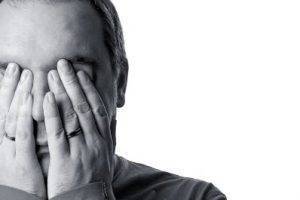Seeking Help
General Information
 Cognitive Behavioural Therapy (CBT) is based on a programme of structured self-help. Behaviour Therapy began in the late 1960s and is the most researched psychological treatment for OCD. This is the therapy model that research to date has found to be the most effective in the treatment of OCD, Trichotillomania and Body Dysmorphic Disorder.
Cognitive Behavioural Therapy (CBT) is based on a programme of structured self-help. Behaviour Therapy began in the late 1960s and is the most researched psychological treatment for OCD. This is the therapy model that research to date has found to be the most effective in the treatment of OCD, Trichotillomania and Body Dysmorphic Disorder.
Cognitive Behavioural Therapists come from a variety of professional backgrounds but are usually psychologists, nurses or psychiatrists.
OCD Ireland is not in a position to make referrals to specific therapists or treatment providers. But we can of course provide some general guidelines. There are a few options for individuals to consider:
- One option is to ask your GP for a referral to your local mental health service. Many areas in the country now have a Clinical Nurse Specialist in Cognitive Behavioural Therapy.
- If you are interested in looking for specialist private help for OCD, a directory of accredited cognitive behavioural therapists can be obtained from the ‘Find a Therapist’ section on the website of the British Association of Behavioural and Cognitive Psychotherapy (BABCP) or the website of the Cognitive Behavioural Psychotherapy Ireland (CBTI). Cognitive Behavioural Therapy (specifically Exposure and Response Prevention) is the psychological treatment of choice with respect to OCD.
- Make sure that any practitioner advertising treatment for OCD has at least 2-3 years training in Cognitive Behavioural Therapy and is a member of the Irish Branch of the BABCP or the CBTI. Some Counselling Psychologists and Clinical Psychologists also specialise in CBT. You can contact the Psychological Society of Ireland with respect to finding practitioners with this speciality.
- Individuals may also want to consider therapists located outside of Ireland – there are therapists both in Ireland and abroad who specialise specifically in OCD treatment. These therapists may provide the option of internet-based video sessions.
Seeking Help for Minors
 OCD Ireland does not work directly with minors, but carers should know that persons under 16 with any sort of mental illness qualify for free “drugs, medicines, and medical and surgical appliances directly related to the treatment of your illness” under the Long-Term Illness Scheme, regardless of their income or other circumstances.
OCD Ireland does not work directly with minors, but carers should know that persons under 16 with any sort of mental illness qualify for free “drugs, medicines, and medical and surgical appliances directly related to the treatment of your illness” under the Long-Term Illness Scheme, regardless of their income or other circumstances.
A medical card can be granted to someone on a discretionary basis, if their “income is over the financial guidelines, but the HSE decides that the financial burden of medical or other exceptional circumstances would cause undue hardship”, which it may well if someone is on certain psychiatric medications for a lengthy period of time. If one’s application is rejected, petitioning local TDs for assistance may be helpful.

